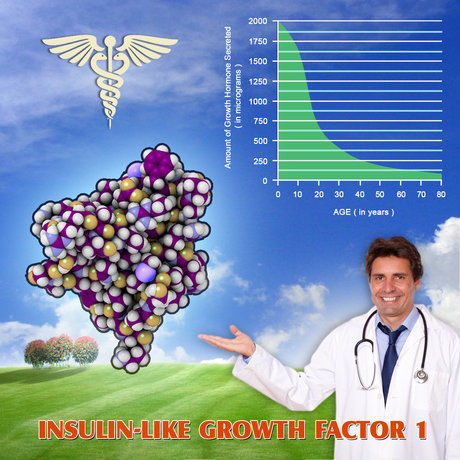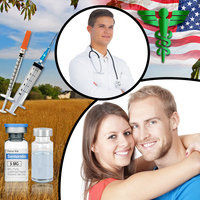Introduction
The relationship between alcohol consumption and sexual health has long been a subject of interest and concern among medical professionals and the general public alike. In the United States, where alcohol use is prevalent, understanding its impact on sexual function is crucial, particularly for American males who may be at risk of developing sexual dysfunction due to their drinking habits. This article delves into a longitudinal study that meticulously tracks the weekly alcohol intake of American males and its correlation with sexual dysfunction, providing valuable insights into this complex issue.
Study Methodology and Participant Demographics
The longitudinal study in question involved a cohort of 1,500 American males aged between 25 and 65 years, who were followed over a period of five years. Participants were required to report their weekly alcohol consumption accurately, using a standardized questionnaire. The study also gathered data on various aspects of sexual function, including erectile function, libido, and overall sexual satisfaction, using validated scales such as the International Index of Erectile Function (IIEF).
Findings: Alcohol Consumption and Sexual Dysfunction
The results of the study were both revealing and concerning. It was found that participants who consumed more than 14 standard drinks per week had a significantly higher incidence of sexual dysfunction compared to those who consumed less. Specifically, the risk of erectile dysfunction (ED) increased by 30% for every additional 7 drinks per week. Moreover, higher alcohol intake was associated with decreased libido and lower overall sexual satisfaction.
Mechanisms Linking Alcohol to Sexual Dysfunction
Several mechanisms may explain the link between alcohol consumption and sexual dysfunction. Alcohol is a known depressant that can interfere with the central nervous system, potentially affecting sexual arousal and performance. Chronic alcohol use can also lead to hormonal imbalances, such as decreased testosterone levels, which are crucial for maintaining sexual function. Additionally, alcohol can contribute to vascular damage, which is a primary cause of erectile dysfunction.
Implications for Public Health and Clinical Practice
The findings of this study have significant implications for public health initiatives and clinical practice. Healthcare providers should routinely screen American males for alcohol consumption and discuss the potential risks of sexual dysfunction associated with excessive drinking. Public health campaigns could focus on raising awareness about the impact of alcohol on sexual health, encouraging moderation or abstinence to preserve sexual function.
Limitations and Future Research Directions
While the study provides robust evidence of the association between alcohol consumption and sexual dysfunction, it is not without limitations. The self-reported nature of alcohol intake may introduce bias, and the study did not account for other factors that could influence sexual function, such as mental health status or concurrent medication use. Future research should aim to address these limitations and explore the reversibility of sexual dysfunction with reduced alcohol consumption.
Conclusion
The longitudinal study tracking weekly alcohol intake among American males offers compelling evidence that excessive alcohol consumption is a significant risk factor for sexual dysfunction. As American males navigate their health and lifestyle choices, understanding the impact of alcohol on sexual health is essential. By fostering greater awareness and encouraging responsible drinking habits, it may be possible to mitigate the risk of sexual dysfunction and enhance overall well-being.
This article underscores the importance of considering alcohol consumption in the broader context of sexual health, urging American males to reflect on their drinking habits and seek professional advice if necessary.
Contact Us For A Fast And Professional Response

- Exploring the Therapeutic Potential of Kisspeptin in Men with Hypothalamic Hypogonadism: A Focus on Sexual Function and Desire [Last Updated On: February 22nd, 2025] [Originally Added On: February 22nd, 2025]
- Somatostatin Analogues and Male Sexual Dysfunction: Mechanisms, Evidence, and Management Strategies [Last Updated On: March 2nd, 2025] [Originally Added On: March 2nd, 2025]
- The Impact of Hormonal Balance on Erectile Function: A Comprehensive Guide for Men [Last Updated On: March 7th, 2025] [Originally Added On: March 7th, 2025]
- Exploring Neurosteroid Modulation: Novel Approach to Treating Libido Disorders in Men [Last Updated On: March 8th, 2025] [Originally Added On: March 8th, 2025]
- Exploring Vasopressin Receptor Antagonists: A New Frontier in Treating Sexual Dysfunction in Eugonadal Men [Last Updated On: March 9th, 2025] [Originally Added On: March 8th, 2025]
- Managing Hormonal Imbalance in Men: Aromatase Inhibitors and Sexual Health Considerations [Last Updated On: March 9th, 2025] [Originally Added On: March 9th, 2025]
- Unveiling the Potential of DHEA in Combating Age-Related Sexual Dysfunction in Men: Insights from a Rigorous Clinical Trial [Last Updated On: March 12th, 2025] [Originally Added On: March 12th, 2025]
- Exploring Melatonin's Influence on Circadian Rhythms and Sexual Health: A New Horizon for Hormone Therapy in American Males [Last Updated On: March 13th, 2025] [Originally Added On: March 13th, 2025]
- Evaluating hCG Monotherapy and Testosterone Replacement: Impacts on Erectile Function in Men with Secondary Hypogonadism [Last Updated On: March 15th, 2025] [Originally Added On: March 15th, 2025]
- Vitamin D's Role in Enhancing Sexual Health and Testosterone Levels in American Males [Last Updated On: March 18th, 2025] [Originally Added On: March 18th, 2025]
- Testosterone Therapy Enhances Erectile Function via Endothelial and Nitric Oxide Pathways [Last Updated On: March 18th, 2025] [Originally Added On: March 18th, 2025]
- Clinical Trial Reveals GnRH Modulation Therapy Boosts Sexual Desire in Men with HSDD [Last Updated On: March 19th, 2025] [Originally Added On: March 19th, 2025]
- Genetic Polymorphisms in Androgen Receptors Impact Hormone Therapy for Male Sexual Dysfunction [Last Updated On: March 19th, 2025] [Originally Added On: March 19th, 2025]
- SARMs: A Promising Treatment for Sexual Dysfunction in Aging Males [Last Updated On: March 19th, 2025] [Originally Added On: March 19th, 2025]
- Bioavailable vs. Total Testosterone: Predicting HRT Success in Male Sexual Dysfunction [Last Updated On: March 19th, 2025] [Originally Added On: March 19th, 2025]
- Pharmacokinetics of Testosterone Formulations and Their Impact on Sexual Function in Males [Last Updated On: March 20th, 2025] [Originally Added On: March 20th, 2025]
- Leptin Resistance and Sexual Dysfunction in American Males: Impacts and Management Strategies [Last Updated On: March 20th, 2025] [Originally Added On: March 20th, 2025]
- Selenium's Role in Male Hormonal Health and Sexual Function: Insights and Implications [Last Updated On: March 21st, 2025] [Originally Added On: March 21st, 2025]
- Ghrelin's Role in Appetite and Sexual Dysfunction: Insights for American Males [Last Updated On: March 21st, 2025] [Originally Added On: March 21st, 2025]
- Zinc and Testosterone Synergy: Enhancing Sexual Function in American Males [Last Updated On: March 21st, 2025] [Originally Added On: March 21st, 2025]
- Iodine Deficiency, Thyroid Dysfunction, and Male Sexual Health: Multimodal HRT Solutions [Last Updated On: March 21st, 2025] [Originally Added On: March 21st, 2025]
- Age-Related Kiss1 Expression Decline and Sexual Dysfunction in American Men: Insights and Treatments [Last Updated On: March 22nd, 2025] [Originally Added On: March 22nd, 2025]
- Chromium Supplementation Enhances Insulin Sensitivity and Sexual Function in Men on Testosterone Therapy [Last Updated On: March 22nd, 2025] [Originally Added On: March 22nd, 2025]
- Pituitary Microadenomas: Impact on Sexual Function and Hormone Therapy Outcomes in American Males [Last Updated On: March 22nd, 2025] [Originally Added On: March 22nd, 2025]
- Managing Sexual Dysfunction in Klinefelter Syndrome: Optimizing Hormone Replacement Therapy [Last Updated On: March 23rd, 2025] [Originally Added On: March 23rd, 2025]
- Magnesium Levels Predict Testosterone Therapy Success for Erectile Dysfunction in American Males [Last Updated On: March 23rd, 2025] [Originally Added On: March 23rd, 2025]
- HRT Outcomes for Sexual Dysfunction Post-Traumatic Testicular Injury in American Males [Last Updated On: March 23rd, 2025] [Originally Added On: March 23rd, 2025]
- Phlebotomy and Testosterone Therapy Enhance Sexual Function in Hemochromatosis-Induced Hypogonadism [Last Updated On: March 24th, 2025] [Originally Added On: March 24th, 2025]
- Adrenal Insufficiency in Men: Comparing Glucocorticoid and Testosterone Therapies' Efficacy [Last Updated On: March 24th, 2025] [Originally Added On: March 24th, 2025]
- Comparing Hormone Therapies for Opioid-Induced Endocrinopathy in American Males [Last Updated On: March 24th, 2025] [Originally Added On: March 24th, 2025]
- PADAM and Sexual Dysfunction: HRT's Impact on Aging Males' Sexual Health [Last Updated On: March 24th, 2025] [Originally Added On: March 24th, 2025]
- Chemotherapy-Induced Hypogonadism in American Males: Exploring Hormone Replacement Strategies [Last Updated On: March 24th, 2025] [Originally Added On: March 24th, 2025]
- Calcium-to-Magnesium Ratio Enhances HRT Efficacy in American Men's Sexual Health [Last Updated On: March 24th, 2025] [Originally Added On: March 24th, 2025]
- Testicular Failure vs. Secondary Hypogonadism: Tailoring Hormone Therapy for Sexual Dysfunction [Last Updated On: March 24th, 2025] [Originally Added On: March 24th, 2025]
- Boron Supplementation: Enhancing Testosterone and Sexual Function in Aging American Males [Last Updated On: March 24th, 2025] [Originally Added On: March 24th, 2025]
- Obesity-Related Hypogonadism: Weight Loss vs. HRT Effects on Sexual Health in American Males [Last Updated On: March 24th, 2025] [Originally Added On: March 24th, 2025]
- Mumps Orchitis-Induced Testicular Atrophy: Impact on Sexual Function and Hormone Therapy Efficacy [Last Updated On: March 25th, 2025] [Originally Added On: March 25th, 2025]
- NAFLD in American Males: Hormonal Dysregulation, Sexual Dysfunction, and Multimodal Treatment [Last Updated On: March 25th, 2025] [Originally Added On: March 25th, 2025]
- Managing Sexual Health in American Males with CKD: Optimizing Hormone Replacement Therapy [Last Updated On: March 25th, 2025] [Originally Added On: March 25th, 2025]
- Iron Overload and Hypogonadism: Phlebotomy and HRT for Sexual Health in American Males [Last Updated On: March 25th, 2025] [Originally Added On: March 25th, 2025]
- Varicocelectomy with Hormone Therapy Enhances Sexual Function in American Males [Last Updated On: March 25th, 2025] [Originally Added On: March 25th, 2025]
- Smoking's Impact on Sexual Health: Mechanisms and Mitigation Strategies [Last Updated On: March 25th, 2025] [Originally Added On: March 25th, 2025]
- Copper-to-Zinc Ratio: Predicting Hormone Therapy Success in American Males with Sexual Dysfunction [Last Updated On: March 25th, 2025] [Originally Added On: March 25th, 2025]
- Hormone Replacement Therapy for Post-Orchitis Testicular Atrophy: Impact on Sexual Function in American Males [Last Updated On: March 25th, 2025] [Originally Added On: March 25th, 2025]
- Managing Sexual Dysfunction in Diabetic American Males: Metabolic Control and Hormone Optimization [Last Updated On: March 25th, 2025] [Originally Added On: March 25th, 2025]
- Timing of HRT Crucial for Sexual Function in Males with Delayed Puberty [Last Updated On: March 25th, 2025] [Originally Added On: March 25th, 2025]
- Testicular Torsion's Impact on Sexual Function and Role of Hormone Optimization in American Males [Last Updated On: March 26th, 2025] [Originally Added On: March 26th, 2025]
- Radiation-Induced Testicular Damage: Mitigating Sexual Dysfunction with Targeted Hormone Therapy [Last Updated On: March 26th, 2025] [Originally Added On: March 26th, 2025]
- Abstinence and Hormone Therapy: Enhancing Sexual Function in Alcohol-Affected American Males [Last Updated On: March 26th, 2025] [Originally Added On: March 26th, 2025]
- Cushing's Syndrome in Men: Sexual Function Recovery with Cortisol and Testosterone Therapy [Last Updated On: March 27th, 2025] [Originally Added On: March 27th, 2025]
- Cryptorchidism: Impacts on Sexual Health and Hormone Therapy Solutions [Last Updated On: March 27th, 2025] [Originally Added On: March 27th, 2025]
- Marijuana Use and Its Impact on Male Sexual Function and Hormonal Health [Last Updated On: March 27th, 2025] [Originally Added On: March 27th, 2025]
- Anabolic Steroid-Induced Hypogonadism: Recovery Protocols for American Males' Sexual Health [Last Updated On: March 28th, 2025] [Originally Added On: March 28th, 2025]
- IBD's Impact on Male Sexual Health and Testosterone: Management Strategies [Last Updated On: March 28th, 2025] [Originally Added On: March 28th, 2025]
- Subclinical Hypothyroidism's Impact on Testosterone and Sexual Dysfunction in American Males [Last Updated On: March 28th, 2025] [Originally Added On: March 28th, 2025]
- Comparing Dopamine Agonists and Testosterone for Hyperprolactinemia-Induced Sexual Dysfunction in Men [Last Updated On: March 29th, 2025] [Originally Added On: March 29th, 2025]
- Multiple Sclerosis in Men: Neurohormonal Approaches to Treating Sexual Dysfunction [Last Updated On: March 29th, 2025] [Originally Added On: March 29th, 2025]
- CPAP and Hormone Therapy Enhance Sexual Health in Men with Obstructive Sleep Apnea [Last Updated On: March 29th, 2025] [Originally Added On: March 29th, 2025]
- Rheumatoid Arthritis in Males: Impacts on Sexual Health and Benefits of Combined Therapies [Last Updated On: March 30th, 2025] [Originally Added On: March 30th, 2025]
- Alzheimer's Impact on Sexual Health: Exploring Hormone Therapy Solutions [Last Updated On: March 30th, 2025] [Originally Added On: March 30th, 2025]
- Parkinson's Disease in American Males: Managing Sexual Health and Dysfunction [Last Updated On: March 31st, 2025] [Originally Added On: March 31st, 2025]
- Neuroendocrine Assessment and Hormone Therapy for Post-Stroke Sexual Dysfunction in Men [Last Updated On: April 2nd, 2025] [Originally Added On: April 2nd, 2025]
- HRT as a Promising Solution for SSRI-Induced Sexual Dysfunction in American Men [Last Updated On: April 4th, 2025] [Originally Added On: April 4th, 2025]
- Spinal Cord Injury in American Males: Addressing Sexual Dysfunction Holistically [Last Updated On: April 4th, 2025] [Originally Added On: April 4th, 2025]
- GnRH Agonist Therapy: Balancing Prostate Cancer Control with Sexual Health in American Males [Last Updated On: April 6th, 2025] [Originally Added On: April 6th, 2025]
- Beta-Blockers and Sexual Dysfunction in American Males: Effects and Hormone Therapy Solutions [Last Updated On: April 8th, 2025] [Originally Added On: April 8th, 2025]
- Statins and Male Sexual Health: Hormonal Impacts and Testosterone Therapy Effectiveness [Last Updated On: April 9th, 2025] [Originally Added On: April 9th, 2025]
- Managing Antipsychotic-Induced Hyperprolactinemia and Sexual Dysfunction in American Males [Last Updated On: April 9th, 2025] [Originally Added On: April 9th, 2025]
- Managing ADT Side Effects: Partial Hormone Replacement for Prostate Cancer Patients [Last Updated On: April 9th, 2025] [Originally Added On: April 9th, 2025]
- Clomiphene Citrate vs. TRT: Effects on Sexual Function and Fertility in Young Men [Last Updated On: April 10th, 2025] [Originally Added On: April 10th, 2025]
- Hormone Modulation Therapies for Recovering from 5?-Reductase Inhibitor-Induced Sexual Dysfunction [Last Updated On: April 10th, 2025] [Originally Added On: April 10th, 2025]
- Radiotherapy-Induced Endocrine Dysfunction: Hormone Therapy for Sexual Health in American Males [Last Updated On: April 10th, 2025] [Originally Added On: April 10th, 2025]
- hCG Monotherapy Enhances Sexual Function in American Males on TRT [Last Updated On: April 10th, 2025] [Originally Added On: April 10th, 2025]
- Aromatase Inhibitors Enhance TRT: Managing Estrogen Side Effects and Preserving Sexual Function [Last Updated On: April 10th, 2025] [Originally Added On: April 10th, 2025]
- Optimizing Sexual Health Post-Prostatectomy with Hormone Replacement Therapy: A Comprehensive Guide [Last Updated On: April 11th, 2025] [Originally Added On: April 11th, 2025]
- Anastrozole Enhances Sexual Function in Men on TRT by Managing Estradiol Levels [Last Updated On: April 14th, 2025] [Originally Added On: April 14th, 2025]
- Comparing Enclomiphene and Testosterone Gel for Sexual Dysfunction in Secondary Hypogonadism [Last Updated On: April 15th, 2025] [Originally Added On: April 15th, 2025]
- Hormone Optimization Enhances PDE5 Inhibitor Efficacy in Hypogonadal Men with ED [Last Updated On: April 16th, 2025] [Originally Added On: April 16th, 2025]
- Testosterone Normalization Enhances Alprostadil Effectiveness in Treating Erectile Dysfunction [Last Updated On: April 16th, 2025] [Originally Added On: April 16th, 2025]
- Multimodal Treatment for ED: Pelvic Floor Therapy and Hormone Replacement Synergy [Last Updated On: April 16th, 2025] [Originally Added On: April 16th, 2025]
















